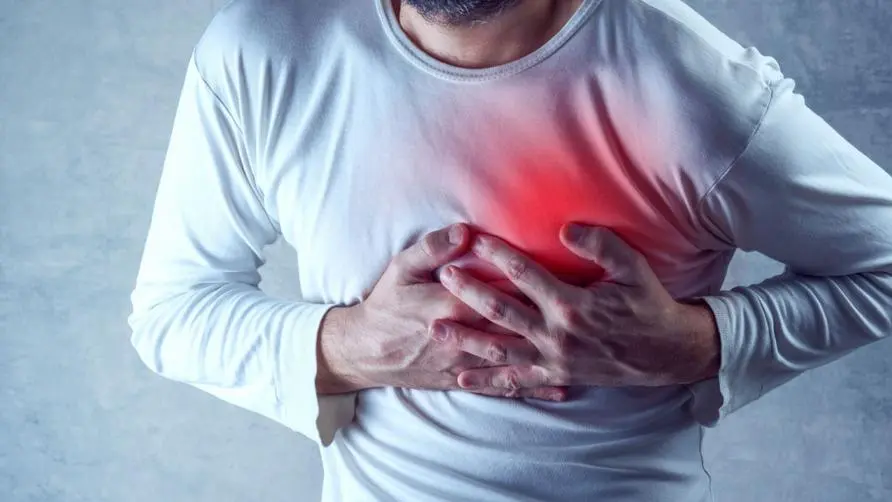Will the human body "fall off a cliff and age" once it reaches the age of 34? Intensivists urge: Take "8 measures" while you are young to prepare for aging

After a certain age, humans will inevitably face the fate of “avalanche aging”? Dr. Huang Xuan, an expert in critical care medicine, stated in a social post that human aging is an inevitable phenomenon, but after passing a certain critical point, the brain may age rapidly like falling off a cliff, undergo collapse degeneration, and even endanger lifespan. Even though it sounds horrifying, it has been confirmed by the authoritative journal “Nature”.
Will the brain age at the age of 70? Research: 4 phenomena may begin to harm the human body!
A research team led by the University of Cambridge in the United Kingdom published a study in Nature and pointed out that the human body is most likely to reach a cliff-like aging state at the age of 70. The cause can be traced back to “hematopoietic stem cells”: throughout the human life cycle, molecular damage is progressive and lifelong accumulation, including “telomere attrition”, “somatic mutations”, “epigenetic changes” and “oxidation” “Stress response” and other phenomena.
This kind of molecular damage gradually accumulates. After the age of 70, a large amount of toxins and metabolic wastes in the body increase to the critical level and remain unresolved. At this time, the body cells may die in large quantities. Another literature believes that the brain will reach two critical points of aging transition in middle age and old age, namely “54 years old” and “72 years old”.
This study found that the brain produces a “SASP protein substance” under the overexpression of a certain gene (Vimar/RAP1GDS1), and begins to show mitochondrial fragmentation and intracellular calcium overload around the age of 54. , decreased energy metabolism and other conditions. If these conditions continue to accumulate until around the age of 72, they may lead to accelerated brain aging, cognitive function decline and shortened lifespan.
The human body will age significantly as early as 34 years old? The “3 stages” of life are important and critical periods
In addition, a study in Nature Medicine recruited 4,263 subjects aged 18-95 and analyzed 2,925 plasma proteins in their bodies. It was found that these proteins showed the following non-linear changes with age:
1. **The peak of aging begins at the age of 34.
The sudden aging at the age of 34 is most obvious in “appearance”. Studies believe that proteins involved in structural pathways are significantly down-regulated at this time, such as a significant decrease in proteins related to the extracellular matrix (ECM). The important component of the extracellular matrix is "collagen". The reduction of the extracellular matrix means the loss of collagen, causing facial muscles to begin to collapse, the skin to relax, and the youthful plumpness, elasticity and luster to be lost.
2. **More obvious aging peaks appear at the age of 60 and 78.
The disintegrating aging seen at the age of 60 and 78 is not only seen on the surface of the skin, but is most obvious in “healthy” aging. At the age of 60, there is a large loss of proteins related to hormone activity, binding function, and blood pathways; and at the age of 78, severe impairments in protein signaling related to blood pathways and bone morphogenesis begin.
Research has found that protein peaks at the ages of 60 and 78 are mainly disease-related protein fluctuations. Proteins related to aging diseases such as Alzheimer’s disease and cardiovascular disease have significantly increased, which not only blocks neurotransmitters, but also causes Severe and rapid aging of internal organs. These protein peaks are related to the emergence of diseases and the expression of aging genes, eventually leading to three waves of cliff-like aging in the human body.
Prepare for the cliff-like aging while you are young! Intensivists reveal 8 tricks to delay brain aging
Is the above-mentioned cliff-like aging situation inevitable? What measures can be taken in life to slow down the aging process? Dr. Huang Xuan suggests that the public can take the following 8 major measures in life to keep the brain in optimal condition and prepare for early aging:
Control the three highs. Most of the fatal diseases are related to “blood vessels”, such as coronary heart disease, myocardial infarction, arteriosclerosis, stroke, etc. Blood vessels are the transport system of the human body, transporting nutrients and oxygen to tissues and organs while expelling metabolic waste. To protect blood vessels from aging, controlling blood sugar, blood lipids and blood pressure is a key.
Quit smoking. Smoking is one of the important risk factors for brain aging. It increases oxidative stress, damages vascular endothelium, promotes thrombosis, and increases the risk of cerebral ischemia and hemorrhage. Quitting smoking can reduce the risk of cardiovascular disease, improve blood supply to the brain, and improve cognitive function.
Keep exercising. Exercise not only exercises the body, but also “exercises the brain.” Exercise can promote blood circulation, allowing more oxygen and blood to be transported to the brain to provide nourishment for brain cells. Exercise can also stimulate the brain to secrete beneficial chemicals such as endorphins, serotonin and dopamine, which can help improve mood, concentration and memory.
Lifelong learning. Learning is the best way to keep your brain active and flexible. Any new learning activity forms new neural connections in the brain, helping to avoid dementia-related brain damage. It is recommended to learn new things every day, whether it is language, musical instruments, games, or books, which will help improve brain function and stimulate the formation of new neurons.
Be social. Avoid isolating yourself after middle age and encourage others to establish social and emotional connections, which can reduce the risk of diseases caused by aging. Some studies have found that people with larger social networks have better connectivity of white matter fiber tracts in the brain. In addition, meeting new people can also clear your mind, change the way you think, and gain new inspiration and ideas.
Eat healthy. Research has found that limiting caloric intake can help extend lifespan; those who regularly consume high calories have a 2-fold increased risk of death and a 4-fold increased risk of cancer compared with those who consume low calorie intake. If you base your diet on plant-based foods, eat more nuts and beans, and consume a small amount of fish and white meat, this may be the most beneficial approach to health.
Regular physical examination. Regular health check-ups can detect underlying diseases and understand the extent of damage to organs. For those with underlying diseases, physical examinations need to be targeted. For example, patients with hypertension need to undergo related examinations such as electrocardiogram, cardiac ultrasound, kidney and blood vessel ultrasound, biochemical blood tests, and brain MRI/CT.
Get enough sleep. Most adults need 7-9 hours of sleep per night. Getting enough sleep improves brain function and reduces the risk of chronic disease.
Source:
Clonal dynamics of haematopoiesis across the human lifespan
Undulating changes in human plasma proteome profiles across the lifespan
“After a certain age, you will suddenly find yourself “aging very quickly”?” - Dr. Huang Xuan
Further reading:





